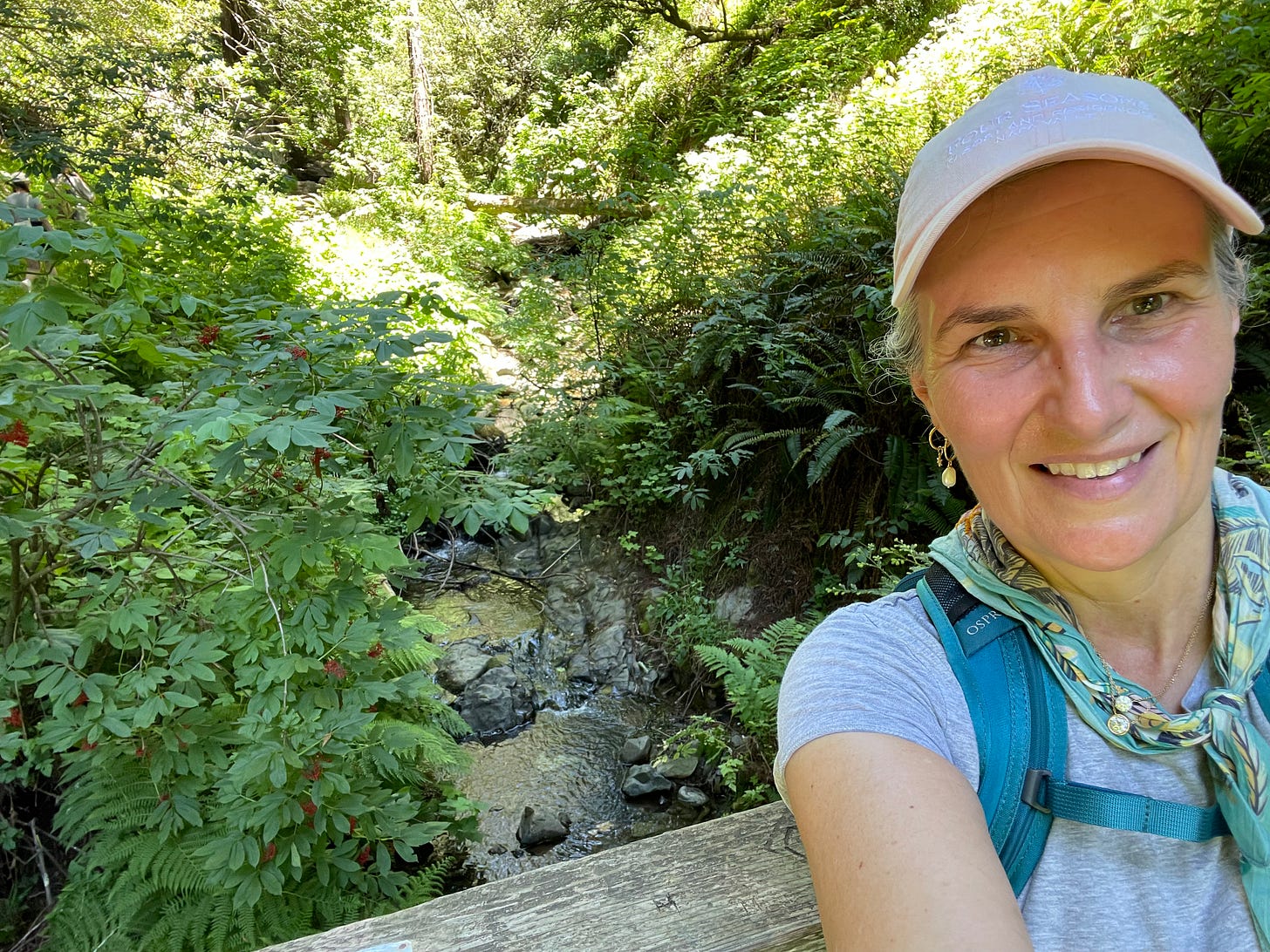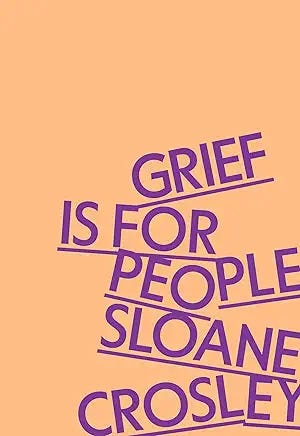Here I am, hiking the Dipsea Trail in Marin County for the first time in June. A bucket list trip that I hope I’ll do again this year.
In December I make a quick “select” slideshow album of the year on my phone. On New Year’s Eve, I teach myself (again) how to screen share and we watch it as a family. We laugh and remember events we forgot and experience the story of our year. This year though (Graham’s 4th year with ALS), the collection of photos on my phone barely skimmed the surface of the year’s narrative arc. There were so many happy moments!
I suppose this should be a comfort. But tbh the photographs feel relentlessly cheerful, like a myopic view that betrays the whole of the story--shouldn’t we have some way of appreciating the fact of our living through the sad stretches? What kind of celebration is there for that? Because I want one.
Recently a friend I hadn’t talked to in awhile complimented me on my bravery, but what I tell anyone who says this to me (it comes up more than I would have imagined it would) is that I rarely feel brave. I mostly feel tired, which is what I said to my friend. His reply: steadfastness is meaningfully related to bravery. Steadfastness. This is a quality I can claim. It’s a trait our whole family expressed--a lot--in 2024.
My collection of snapshots doesn’t show this though. The photos are the moments where we caught our breath, or maniacally, comically, scrabbled through to the next moment. This clambering between hospital visits, between house floods, between more health issues visiting people we love, between surgeries and college rejections, breakups, set backs, fender benders, and mysterious ALS symptoms. Oh and the election with all its accompanying bananas anti trans bullshit. The clambering feels like the story of our year. Clambering has a very thin photographic record though.
In my last post I talked about the importance of keeping good company, and my favorite book of the year, Grief is for People, by Sloane Crosley was some of the best company I kept all year--on the page or otherwise. I didn’t realize until I went back to think about why I liked it that its a book about the clambering. It’s a book about loss, but unlike other ones I’ve read, it isn’t the story of the event itself, but of the time after—one writer’s record of her absurd, nonsensical quest to put the loss in its place. Spoiler: her final description of herself before the book’s epilogue is “disoriented but awake.”
Hanging out with Crosley’s dark, post-gallows honesty and wit felt like hiding under the heated blanket at my friend Laurel’s house. Reading it was a refuge for feeling not so-positive feelings alongside a voice that was not judging me—and not because Crosely isn’t judgey, but precisely because she is. On the page she was snarky in all the right ways. For example:
“Anger is a cousin of intelligence. If you are not revolted by certain things you have no boundaries. If you have no boundaries, you have no self-knowledge. If you have no self-knowledge, you have not tasted, and if you have no taste, why are you here?”
And again in artful self-deprecation that acknowledged how crazy she had become:
“Is there such a thing as a funeralzilla? When my former colleagues secured a space for a memorial service, I did my best to make them regret consulting me. I objected to everything. I wanted something small. Dinner at an expensive restaurant. And we were to serve only Russell’s favorite foods. No fucking dill.”
The inappropriate swearing alone, and the fact that a police officer suggested that she needed a swear jar made me feel like I had found my people.
Grief seems to, in some of us, generate an abundance of inappropriate feelings and behaviors. We can spot one another across the proverbial room (back to school nights, in line at the grocery store, all over the interwebs) because the inappropriateness wafts off of us like BO. We don’t repel each other because we’ve gotten used to it. So we are not inclined to remind each other how brave we are or share that we admire one another. Instead we look in each other’s grocery carts and say hey, looks like you need another bottle of chardonnay in there, or yes, I’m buying Cheetos, I’m eating my feelings tonight what are you doing, or, wow, looks like you made it into the shower today--great job. I have one griever friend who doesn’t live in town so we text--most of the time I just send her an emoji of a smoldering cigarette--my way of saying, “Is today the day we become smokers?”
I feel perpetually off-script. When I run into an old acquaintance on the street it feels like my only choices are to honestly share my abundance of inappropriate darkness or just lie and tell the person I’m fine.
Just this week, Crosely published a powerful op-ed in the New York Times. In it she writes:
“On top of not being a grief counselor or someone partial to tasks, I have an allergy to earnestness. This is not a coping mechanism. It’s that my personality has many areas in need of improvement, but one of them is not the straight-faced application of the word “journey.” At first I chalked up my dismissal of grief vocabulary (“process,” “meaning making”) as a personal problem. These somber ways of talking about death, sometimes performative, sometimes pat, wind up excluding those of us who transmit our pain through humor. This is me tackling the subject. You’re looking at it.”
One of the ways that ALS has made my life smaller is that dark humor has been one of my life lines. And unless I have established a depth of rapport with someone which allows us to cut straight to debating the best nail color for a stay in the ICU or whether or not it’s a good idea to get a sixth cat--there is an intimidating, impossible social hurdle we both have to cross. Somehow we need to acknowledge my family’s current catastrophe without getting sucked into the infinite black hole of its sadness while we standnext to a crate of honeycrisp apples or in front of the lit Christmas tree at the mall.
There is no photographic record of this dance, but I have done it a lot this year. And more of us are grievers than we let onto. I am grateful for the acquaintances who as that dance starts look right into my eyes and say, I get it. I remember when I needed to use post its to remind myself to eat. That was a terrible time. There is no good photograph for this kind of connection, or for the moments when my IRL close friends kept me laughing. But there is Sloane Crosley’s book, Grief is for People, and while it is not the story of my year, her story made me feel less alone in mine.






Oh, this post. The dance. Yes. And the idea of inappropriate swearing (or snark, or feelings) connected to grief. I loved it all, Cristina. With you in the tangle of the dark thorn-forest, and next to the Christmas apples, none of which will not appear in social media photographs.
Love this: "When I run into an old acquaintance on the street it feels like my only choices are to honestly share my abundance of inappropriate darkness or just lie and tell the person I’m fine."